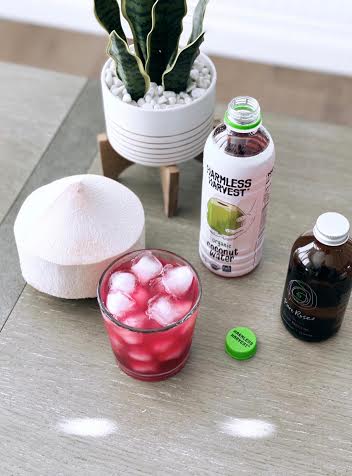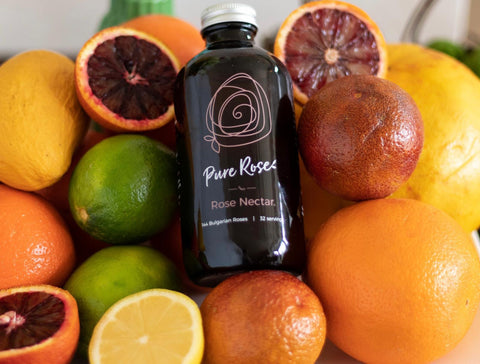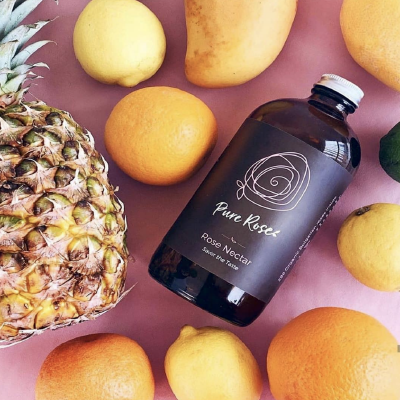Boosting your immunity is now more important than ever. Here are ten science-backed, easy steps to build your natural defense against viruses.
We are learning at an exponential rate about the new “invisible enemy” called novel Coronavirus. There are still many unknowns. Yet, scientists, physicians, and experts worldwide agree on one undeniable truth. The strength of our immune system draws the line between breezing through COVID-19 with no symptoms and ending up as one of its casualties. Our immune system is the first and the last front of defense with which mother nature equipped us to fight off viruses. “Hope for the best, prepare for the worst.” For our own safety and for the safety of those around us, we need to limit exposure to the virus by embracing social distancing and strict hygiene. We already know it works. While scientists are making progress towards a vaccine, you can focus on what you can control: supercharging your immune system!
Not tomorrow. Not next week. Today!
- Eliminate Stress

In times of uncertainty, fear and stress are rampant. Unfortunately, the media and those around us often exacerbate it. Stress weakens the immune system immensely, making us much more susceptible to disease. Managing stress starts with awareness. Observe your thoughts, focus on the positive, and limit your exposure to the negative (in the media, your social circle, and of course - negative self talk). Focus on what you can control - your response to outside stressors. Choose activities that make you feel good. Self-pampering is never more important than in times like these.
Essential Oils
Organic oils like rose, lavender, chamomile, frankincense, orange, tea tree, eucalyptus, and oregano have a calming and antiviral effect - they neutralize airborne pathogens when used in a diffuser.
Supplements
CBD, L-theanine, Rhodiola, and SAM-e.
Super Herbs
Bulgarian Rose, Holy Basil, Astragalus, Nettle Leaves, Ashwagandha and Amla.
Calm Your Mind
Meditation and deep breathing.
Read more on How to Get Rid of Stress.
- Increase Vitamin D3 and Vitamin C intake

While our bodies make Vitamin D from exposure to sunlight, during winter months (and in days of “shelter in place” as we now call it) we don’t get enough sun exposure and become Vitamin D deficient. Low Vitamin D levels weaken natural immunity and increase susceptibility to infection. Vitamin C is a powerful immune booster, which is why China is using IV Vitamin C to treat its citizens infected with COVID-19.
Vitamin D3
Take 5,000 IU daily.
Vitamin C
Citrus fruit, Pure Rose Nectar, elderberries, and Amla (Indian gooseberries). Take 1,000 mg daily as liposomal Vitamin C.
- Increase Zinc Intake
Zinc deficiency has been a common denominator amongst those that have been afflicted by COVID-19, confirmed by data out of China. Zinc is a trace element that reduces the risk for infections.
How to Consume Zinc
Take a handful of nuts/seeds like sesame, pumpkin, pine and cashew. If you are allergic to nuts, take 8 mg of zinc daily.
- Load Up on Super Herbs

Super herbs like Rosa Damascena (a.k.a. Bulgarian Rose), green tea and astragalus are loaded with antioxidants, flavonoids and polyphenols, which support your immune system.
Pure Rose Nectar
Made with organic Bulgarian Rose oil which contains geraniol and citronellol, giving it antiviral and calming effects.
Astragalus
Contains Astragalosides (antioxidants) that support the integrity of the respiratory tract, the target organ of viruses like Covid 19. Also supports specific immune cells and aids in their function.
Green Tea, or Matcha
Has polyphenols and catechins (like EGCG) with antiviral effects and calming effects
Other Antioxidant-Rich Foods
Artichokes, goji berries, raspberries, kale, beets and spinach.
- Consume Humic and Fulvic Acid

Microbes in the soil make humic and fulvic acid. Fulvic acid is not a vitamin or mineral. Scientists cannot make it in labs. We need it for optimal health, but we no longer get it from our food due to modern agricultural practices. Both humic and fulvic acid have anti-inflammatory, antioxidant and antiviral properties.
Sources of Humic and Fulvic Acid
Blackstrap molasses, Shilajit (Himalayan resin rich in fulvic acid). Supplements. You can also leave a little dirt on your organic home grown vegetables before eating.
- Detox through Diet and Exercise

Exercise raises the body temperature and causes sweating. This helps the body get rid of toxins.Eat foods that are natural detoxifiers.
Exercise
Include cardio, strength training and yoga.
Organic, Non-GMO Leafy Greens
Especially bitter greens like arugula and dandelion.
Spirulina
A nutrient dense algae supplement for gentle detox. Take 1000-3000 mg daily.
- Hydrate

Hydration helps the body process and eliminate toxins and pathogens like viruses. Fluids maintain the function of every body system, delivering nutrients to cells.
Eat Water-Rich Foods
Strawberries, watermelon, cantaloupe, cucumber, oranges, peaches, lettuce, celery, zucchini, tomatoes, bell peppers, coconut water and pineapple.
Drink Water
Eight 8-ounce glasses, two liters, or half a gallon daily.
For Optimal Hydration
Add chia seeds, a pinch of pink himalayan salt, and Pure Rose Nectar to your water. This converts water into gel, structured or living water. The latest science shows gel is more hydrating than liquid water because it is stored in fascia rather than being rapidly excreted through the kidneys.
- Boost Digestive Health

Our gut flora is crucial to our immunity. Prebiotic and probiotic foods feed the good bacteria and promote immune health.
Prebiotic Foods
Asparagus, jicama, onions, garlic, leeks and bananas.
Probiotic Sources
Fermented foods, supplements and organic yogurt with active live cultures. When choosing supplements look for lactobacillus, bifidobacterium, soil based/spore bacillus and saccharomyces boulardii.
Avoid Alcohol
It compromises the microbiome and therefore immune function.
- Get Plenty of Sleep

Inadequate sleep destroys your immune system and reduces virus-fighting antibodies. Harvard Medical School suggests that blue light from electronic devices increases risk of disease by suppressing melatonin and the immune system. Do whatever it takes to get your optimal amount of sleep. Even with a great diet, lack of sleep will erode your immune system and render it ineffective.
Create a Good Sleep Environment
A cool, dark, quiet room. Avoid screen time for at least an hour before bed. Meditation and deep breathing are helpful.
Natural Sleep Aids
Pure Rose Nectar, melatonin, magnesium, CBD, lavender and valerian.
Avoid Caffeine and other stimulants (especially past noon).
- Consume Medicinal Mushrooms

Medicinal mushrooms contain beta glucans that directly activate immune cells in the body.
Consume Medicinal Mushrooms
Take 1 teaspoon (or 2g) daily of medicinal mushrooms like turkey tail, reishi, chaga, maitake, King Trumpet, Agaricus Blazei. Add to smoothies, tea or food.
These strategies will give your immune system a great boost – even if you implement a few at a time. Share this information with your friends and loved ones, especially with elders who are most vulnerable to the novel Coronavirus.
Resources
Recommended Vitamin C, D3 and Zinc Brands
Recommended Super Herb Brands
Recommended Probiotics Brands
Microbiome Labs (MegaSporeBiotic)
Dr. Mercola (Complete Spore Restore)
Recommended Medicinal Mushroom Brands
About the Authors
Pure Rose has assembled a team of world-class scientists, doctors and holistic practitioners around the globe. Their diverse backgrounds contribute to an objective, unbiased point of view and their mission is to give you reliable knowledge to make well-informed decisions.
Sources
Maggini, S.; Wintergerst, E.; Beveridge, S.; Hornig, D. Selected vitamins and trace
elements support immune function by strengthening epithelial barriers and
cellular and humoral immune responses. Br. J. Nutr. 2007, 98, S29–S35.
Clark, A.; Mach, N. Role of Vitamin D in the Hygiene Hypothesis: The Interplay
between Vitamin D, Vitamin D Receptors, Gut Microbiota, and Immune
Response. Front. Immunol. 2016, 7, 627.
Carr, A.; Maggini, S. Vitamin C and immune function. Nutrients 2017, 9, 1211
Wu, D.; Lewis, E.D.; Pae, M.; Meydani, S.N. Nutritional modulation of immune function:
Analysis of evidence, mechanisms, and clinical relevance. Front. Immunol.2019,
9, 3160
Vitamin D Supplementation to prevent acute respiratory tract infections: systemic
review and meta-analysis of individual participant data. BMJ, 15 Feb 2017
Saeed, F.; Nadeem, M.; Ahmed, R.; Nadeem, M.; Arshad, M.; Ullah, A. Studying the
impact of nutritional immunology underlying the modulation of immune
responses by nutritional compounds—A review. Food Agric. Immunol. 2016, 27,
205–229
Wessels, I.; Rink, L. Micronutrients in autoimmune diseases: Possible therapeutic
benefits of zinc and vitamin D. J. Nutr. Biochem. 2019, 77, 108240.
Consumption of a fermented dairy product containing the probiotic Lactobacillus
casei DN-114001 reduces the duration of respiratory infections in the elderly in
a randomised controlled trial. Br J Nutr. 2010 Jan;103(1):58-68. Epub 2009 Sep
- PMID: 19747410
Ashton JE, Harrington MO, Langthorne D, Ngo HV, Cairney SA. Sleep deprivation
induces fragmented memory loss.Learn Mem. 2020 Mar 16;27(4):130-135. Doi:
10.1101/lm.050757.119. Print 2020 Apr. PMID: 32179655
Kelly JR, Keane VO, Cryan JF, Clarke G, Dinan TG. Mood and microbes: Gut to brain
communication in depression Gastroenterol Clin North Am. 2019
Sep;48(3):389-405. doi: 10.1016/j.gtc.2019.04.006. Epub 2019 Jun 12. Review.
PMID: 31383278
Gandy J. J., Meeding J. P., Snyman J. R., Van Rensburg C. E. (2012). Phase 1 clinical
study of the acute and subacute safety and proof-of-concept efficacy of
carbohydrate-derived fulvic acid. Clin. Pharmacol. 4, 7-11. 10.2147/CPAA.S25784
Ghosal S. Chemistry of shilajit, an immunomodulatory Ayurvedic rasayan. Pure and
Applied Chemistry. 1990;62(7):1285-1288.
Annie E Chiu, Joanna L Chan, Dale G Kern, Sabine Kohler, Wingfield E Rehmus, Alexa
B Kimball. Double-blinded, placebo-controlled trial of green tea extracts in the
clinical and histologic appearance of photoaging skin. Dermatol Surg. 2005
Jul;31(7 Pt 2):855-60; discussion 860. PMID: 16029678
Jin-Taek Hwang, Dae Young Kwon, Suk Hoo Yoon. AMP-activated protein kinase: a
potential target for the diseases prevention by natural occurring polyphenols.
Biotechnol.2009 Oct 1;26(1-2):17-22. Epub 2009 Apr 2. PMID: 19818314





